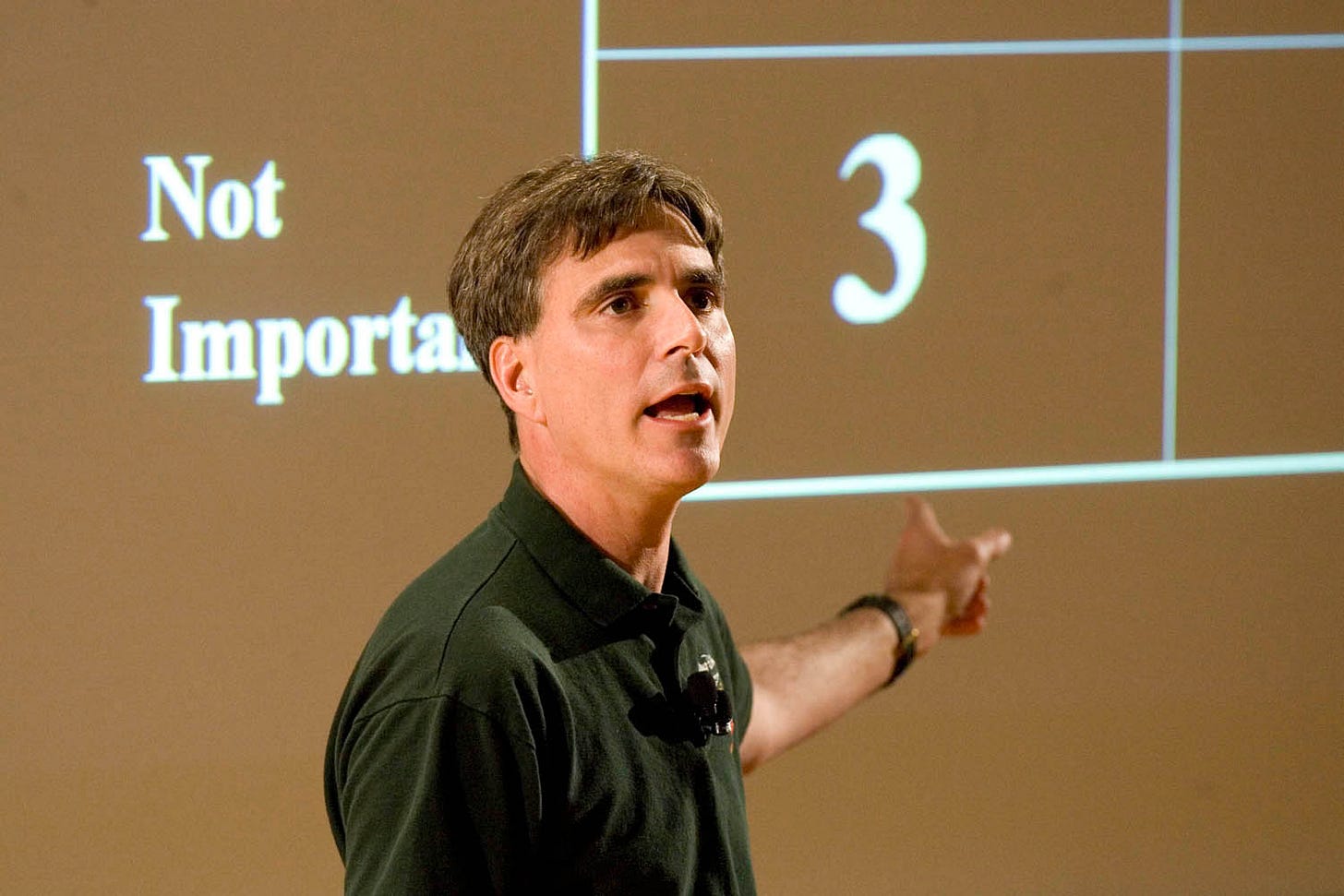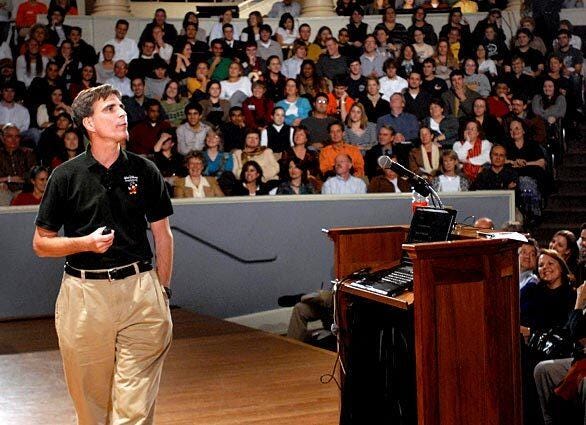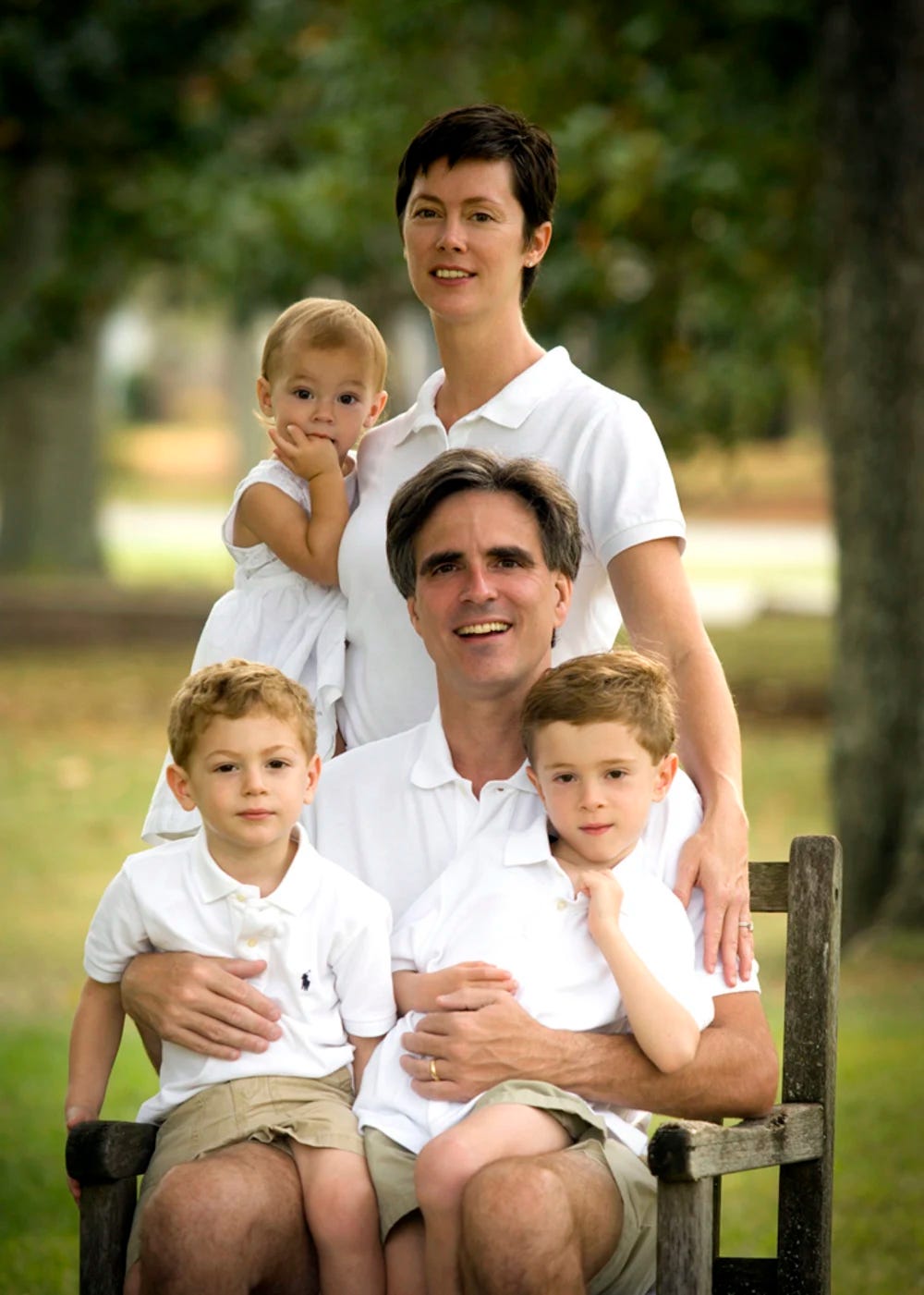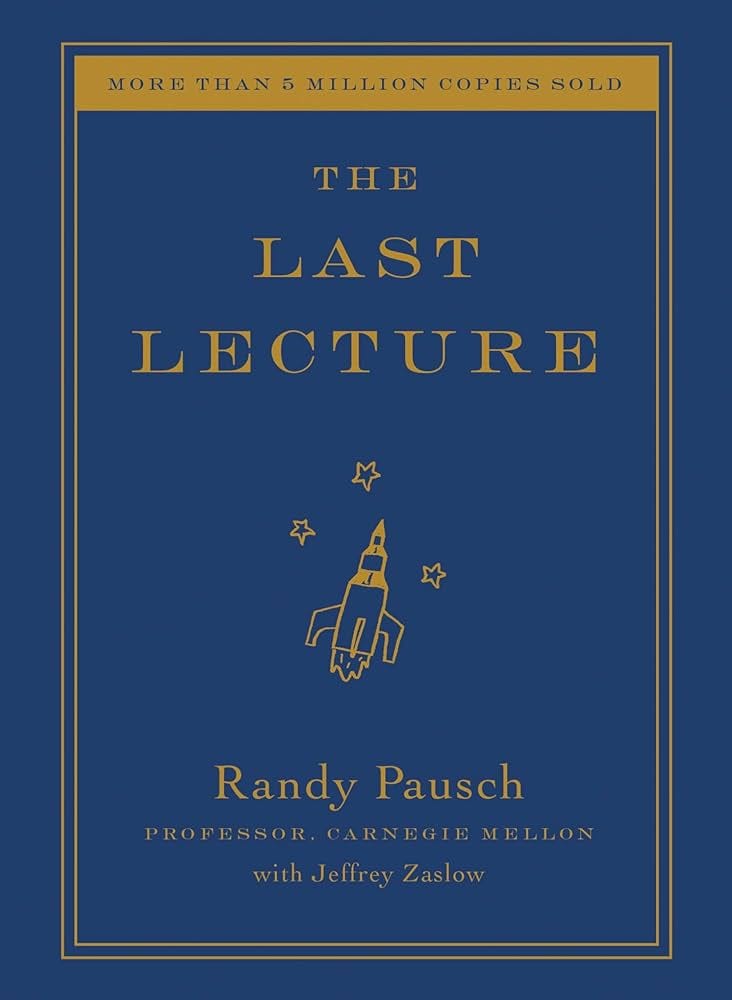Lessons From The Last Lecture and Randy Pausch: 'When We’re Connected to Others, We Become Better People'
Choosing peace when life gives you no choice: Randy Pausch’s final lessons on gratitude, purpose, and calm
How do we say goodbye to those we love?
We probably don’t find a perfect way. We stumble through it, we cry, and we tell stories. We find comfort in memories that appear at the most unexpected moments. That’s kind of how Randy Pausch’s goodbyes went.
Pausch showed that goodbye can also mean continuation, a way of passing on the best of who we are. The people we love don’t disappear when they die. They could echo through our choices, our laughter, our patience, and our kindness.
So, maybe we never really say goodbye. Maybe we learn how to keep someone with us in a different way and carry their spirit forward.
When Pausch walked onto the stage at Carnegie Mellon in 2007, he knew something the audience didn’t: this would be his last lecture. Diagnosed with terminal pancreatic cancer, he had only months to live. Yet instead of dwelling on the unfairness of it all, Pausch chose to talk about life: about how to dream big, how to overcome obstacles, and, maybe most powerful, how to live with a sense of peace even when your time is short.
If you knew the clock was running down, you might feel desperate to do more, be more, squeeze more into every waking minute. Pausch’s instinct was different. He didn’t rush to “fix” everything. He chose how to spend his time, and he spent it deliberately.
“We cannot change the cards we are dealt, just how we play the hand…Be good at something; it makes you valuable.
“Time must be explicitly managed like money.”
Those lines could sound like a cliché until you realize he said it while holding a terminal diagnosis. The hand was bad, but the play was still his.
He saw life’s obstacles not as unfair barriers, but as filters:
“The brick walls are there for a reason… to give us a chance to show how badly we want something. They’re there to stop the people who don’t want it badly enough. They’re there to stop the other people.”
Peace wasn’t necessarily stillness. It was action with clarity. He knew where his energy was going, which is why he had little patience for self-pity.
“Don’t complain, just work harder…Complaining does not work as a strategy. We all have finite time and energy. Any time we spend whining is unlikely to help us achieve our goals. And it won’t make us happier….Luck is truly where preparation meets opportunity.”
For him, inner calm meant seeing reality clearly, deciding what mattered, and doing something about it.
What mattered most to him wasn’t things. There’s the story of pouring soda in the backseat: Once, to show his young nephews that things don’t matter as much as people, Pausch cracked open a can of soda and poured it right onto the seats of his new convertible. Later, when one of the boys got carsick and threw up, he felt no shame. His uncle had already freed him from the burden of perfection.
He encouraged his audience to look for the very best in other people, because he believed that everyone has something to offer, and it’s our job to find it. Be patient with others if you must, no matter how challenging that be.
“Wait long enough, and people will surprise and impress you…Focus on others, not on yourself.
“When we’re connected to others, we become better people.”
Pausch believed gratitude was a quiet form of connection, a way of saying, I see you. You matter.
“Showing gratitude is one of the simplest yet most powerful things humans can do for each other.”
He also knew that time, the one resource you can’t replace, was both precious and perishable.
“The key question to keep asking is, are you spending your time on the right things? Because time is all you have… and you may find one day that you have less than you think.”
As for going after your dreams, Pausch’s advice wasn’t about tactics or luck. It was about how you live each day.
“It’s not about how to achieve your dreams; it’s about how to lead your life. If you lead your life the right way, the karma will take care of itself, the dreams will come to you.”
He couldn’t extend his life. But he could deepen it, and he did by refusing to waste time on resentment, by showing up for the people he loved, by working hard at what mattered, and having some fun along the way.
“Never lose the childlike wonder. It’s just too important. It’s what drives us.”
That’s the paradox of peace: It doesn’t come from controlling the clock; it comes from choosing how to spend what’s left of it.
The Last Lecture begs the questions for us all: What would you do (differently) if you were diagnosed with a terminal illness?
For more, here’s Randy’s full lecture:
Celebrate your gifts,
Matthew





I remember when this was published....such an inspirational message.